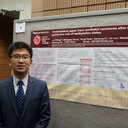Reduction of apoptosis by proanthocyanidin-induced autophagy in the human gastric cancer cell line MGC-803.
Açar sözlər
Mücərrəd
Proanthocyanidins are flavonoids that are widely present in the skin and seeds of various plants, with the highest content in grape seeds. Many experiments have shown that proanthocyanidins have antitumor activity both in vivo and in vitro. Autophagy and apoptosis of tumor cells induced by drugs are two of the major causes of tumor cell death. However, reports on the effect of autophagy induced by drugs in tumor cells are not consistent and suggest that autophagy can have synergistic or antagonistic effects with apoptosis. This research was aimed at investigating whether proanthocyanidins induced autophagy and apoptosis in human gastric cancer cell line MGC-803 cells and to identify the mechanism of proanthocyanidins action to further determine the effect of proanthocyanidins-induced autophagy on apoptosis. MTT assay was used to examine the proanthocyanidin cytotoxicity against human gastric cancer cell line MGC-803. Transmission electron microscopy and monodansylcadaverine (MDC) staining were used to detect autophagy. Annexin V APC/7-AAD double staining and Hoechst 33342/propidium iodide (PI) double staining were used to explore apoptosis. Western blotting was used to determine expression of proteins related to autophagy and apoptosis. Real-time quantitative PCR technology was used to determine the mRNA level of Beclin1 and BCL-2. The results showed that proanthocyanidins exhibit a significant inhibitory effect on the human gastric cancer cell line MGC-803 proliferation in vitro and simultaneously activate autophagy and apoptosis to promote cell death. Furthermore, when proanthocyanidin-induced autophagy is inhibited, apoptosis increases significantly, proanthocyanidins can be used together with autophagy inhibitors to enhance cytotoxicity.




